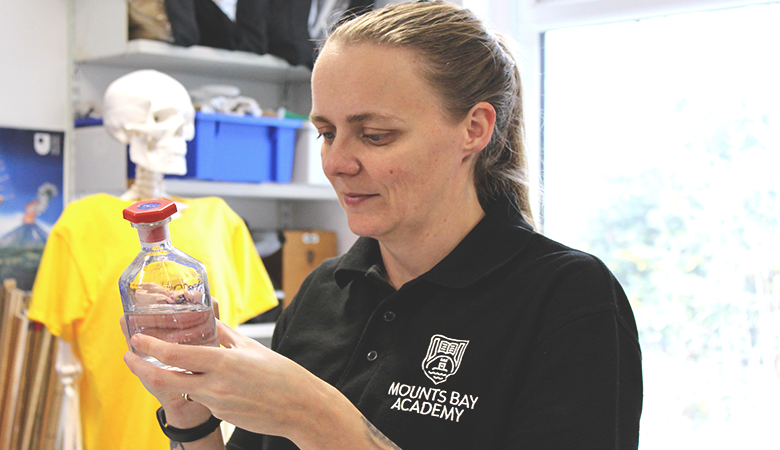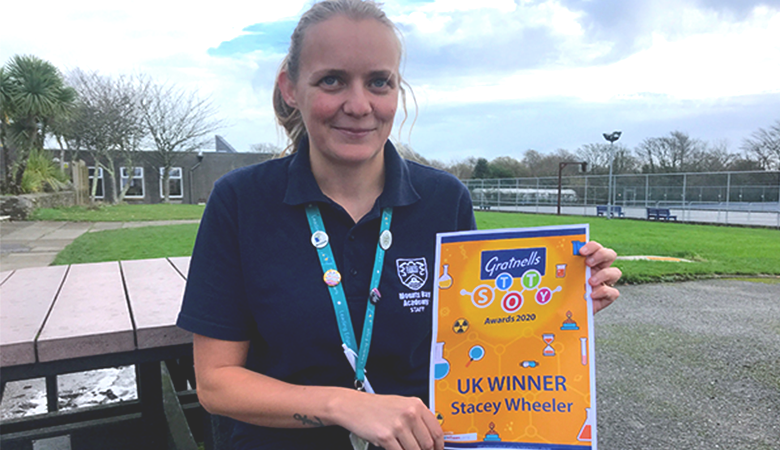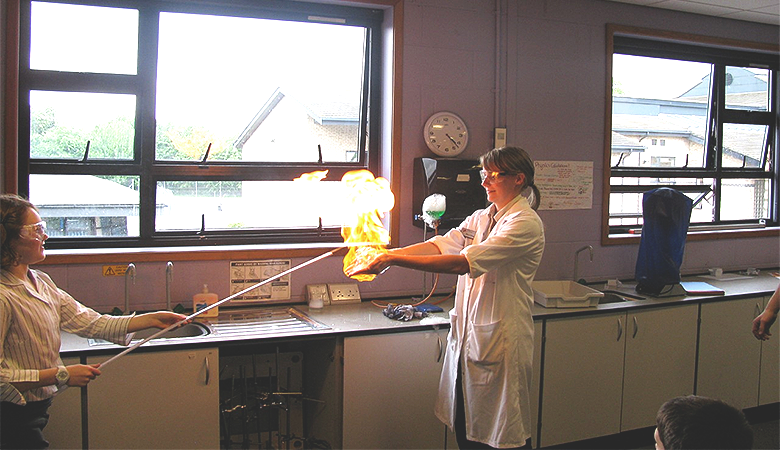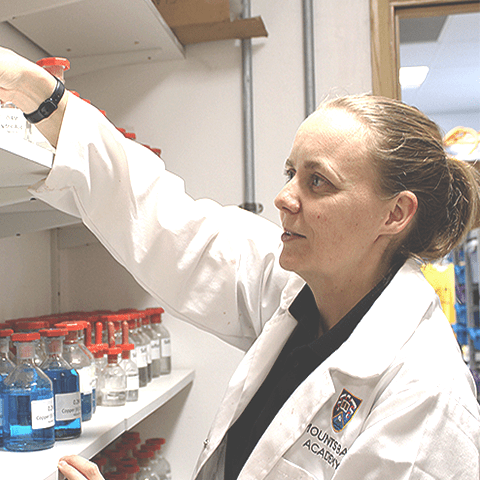A day in the Life of Stacey Wheeler Senior Science Technician @Mountbay Academy
Unsung heroes, School Science Technicians, are vital to science teaching across the UK
Did you know there are 1.5 million technicians across the UK who’s expertise are fundamental to the success of science teaching, providing greater context and engagement for learners.
Science technicians in schools and colleges have a vital role to play in the provision of high quality science education. Well trained science technicians are integral to the quality of teaching and learning through their technical advice and support to teachers and students.
However a recent national survey carried out by the Royal Society of Chemistry ‘The Science Teaching Survey Feb 2022’, highlights that the lack of science technicians is reported by more than 40% of schools in England, Scotland and Wales, hindering students’ access to regular practical work, It also features inequalities in the provision of science education and recognises the added pressure on Science teachers to deliver the curriculum………

At Innova we believe Science Technicians are one of the unsung heroes in schools and colleges. They support the use of practical scientific methods to broaden understanding with the benefits of real discovery.
We approached Senior Science Technician Stacey Wheeler from Mounts Bay Academy to share a day in her working life. Mounts Bay’s facilities include six full size dedicated laboratories, a small teaching lab with 11 science staff, whom Stacey supports daily.
Stacey what are your key responsibilities?
Generally the day to day responsibility is to provide equipment and resources for Science demonstration, class practical work, assessments and examinations whilst also supporting the wider functioning of the department. To work closely with all staff across the department, ensuring that they deliver high-quality teaching and learning in Science. My main duties include:
-
- Setting up experiments in a laboratory environment for practical lessons
- Meeting Health and Safety standards, carrying out risk or COSHH assessments as necessary
- Safely disposing chemicals and other materials as required
- Cleaning and maintaining equipment
- Ordering resources, keeping budgets and stock taking
Take me through a typical day?
8.00am:
- My day starts about 8.00am, on arrival, I check Mounts Bay’s Lablogger system to review the number of practical ordered for the day.
- The system provides an overview of what has been ordered, where it is going to, who it is for and how many sets the teacher requires. Once I have this vital information I can prepare for lessons for the day.
- Whilst I am preparing practical’s, it is always important to test the experiment before use wherever possible. There are times when a practical may not work and it’s down to me to identify the root cause.
8.55am:
- Is the start of period 1.
When all the students are in their classrooms and the corridors are clear, I will deliver the practical/s to the relevant rooms/ teacher safely. I will then head back to the prep room and prepare for the next period.
10.10am:
- At the end of a period 1, I return to the Laboratory and collect the equipment, wash up the glassware using the glass washer or simply hand wash and return all the equipment back to the prep room. Sometimes we have breakages and they are disposed of safely.
10.30am, 11.45am & 13.40pm
- As we have 4 periods a day I will then repeat the above steps for period 2, 3 and 4.
Lunch Break?
- I don’t really have a set lunch break, just work it round my working day
3.30pm
- Start planning for the next day in advance especially if a practical is Microbiology based where more time is required.
4.00pm
- Finish for the day!

How do you incorporate new practical’s Into the curriculum?
I would normally review the CLEAPPS site, as the school is a member. Get inspiration from google searches as well as Social Media. There is a fabulous Facebook site I visit frequently. Liaise with other technicians for ideas, here networking really helps. There is so much information out there that finding new practical ideas is not a problem.
Once I have narrowed down new practical ideas, I then trial the experiment to ensure a positive learning outcome for students. After the practical has been tested and I am happy with it, I will add it to the school’s lablogger system making it available to teachers. Sometimes I share the experiments/demos with the science department during our meetings, which makes it easier to communicate new ideas and gain feedback.
I am currently in the process of compiling a mass of experiments that bring real world science examples into the classroom! Really excited to make them available to the science staff.
“Stacey has worked tirelessly to make Science learning at Mounts Bay Academy of the highest standard every day. Her work in an extra-curricular capacity has led to an increased understanding of the impact of climate change on the environment and the Science behind it.”
Les Hall: Principal

How do you keep abreast of changes in education trends?
Through networking, attending CPD courses, STEM Learning, CLEAPPS and ASE do great things.
For e.g. Whilst I was running a technician network in Nottingham, a member of the SLP suggested I should become a STEM learning Associate Facilitator and pointed me in the right direction to complete the course. Subsequently in this role I have won significant amounts of grants/funding to set up different projects, i.e. Astronomy event for 100 local beavers and rainbows.
I have also built a community of Technicians in Cornwall, offering FREE CPD training , providing opportunity to share skills and equipment and build confidence, through regular communication including face to face meetings. We now have a dedicated facebook page.
I won The Gratnells Science Technician of the Year Award in 2020!
What inspires you about your job?
The students. We are a team of professionals that enthuse and encourage students to do their best in science and hopefully this helps them in their future careers on leaving secondary school.

What challenges does the Technician community face going forward?
Lots of technicians are leaving the profession, whether that is because of retirement, job stress, or salary (lack of). On the job experience and training is fundamentally to becoming a science technician, but more to the point with an ever increasing workload for teachers, the science Technician is a fundamental resource in driving practical teaching for students.
There are so many passionate, but unhappy technicians leaving the profession, that I am genuinely afraid for the future of technicians. I hope not in the too distant future educators and the government will recognise the value of a Science Technician and their input in creating 21st century scientists.
Contact
Looking for a STEM Facility that can meet the challenges of 21st century learning? Call Innova today for a FREE OF CHARGE SURVEY AND INITIAL DESIGN on 0161 4775300 or email hello@innovadesigngroup.co.uk



